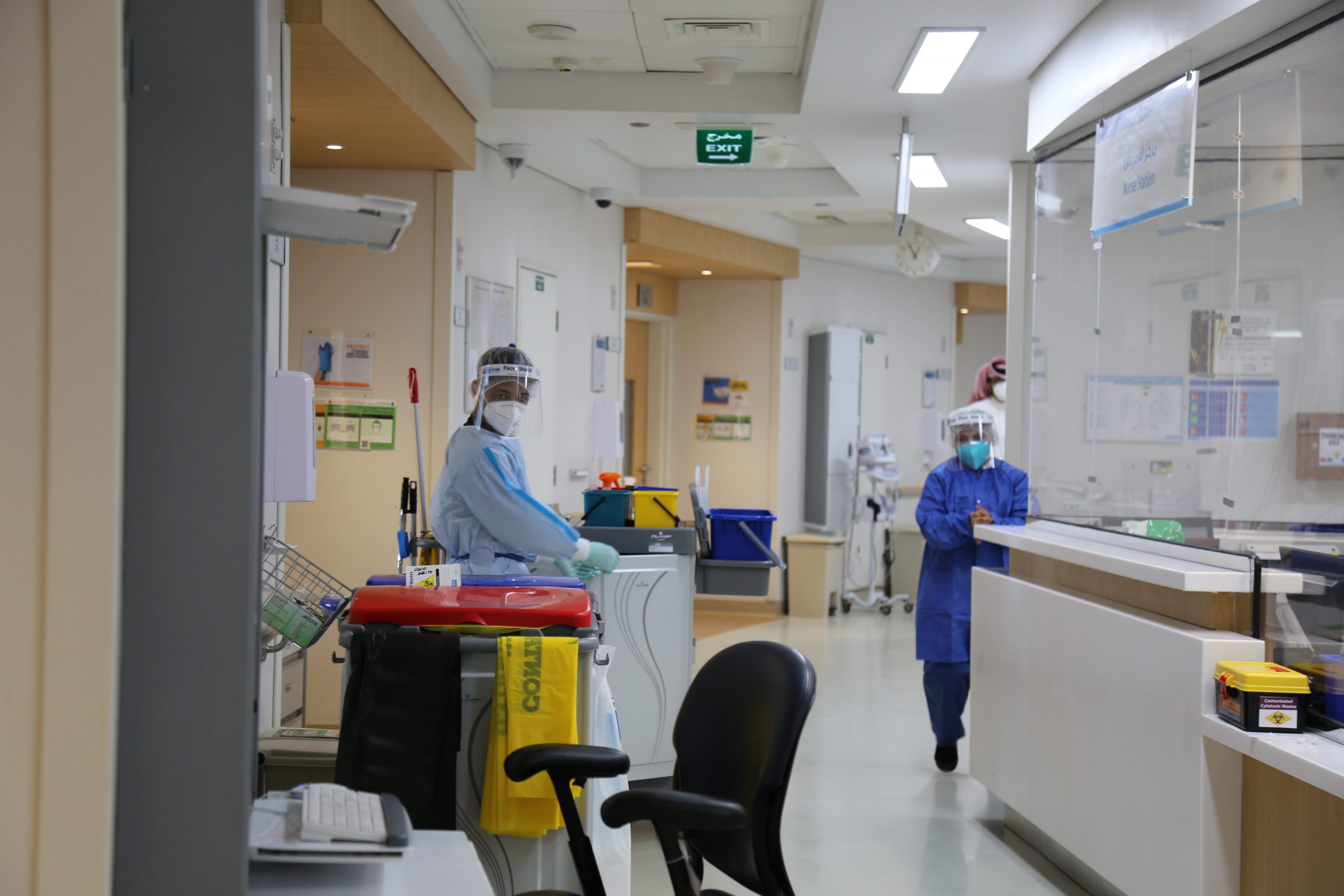The country has seen a significant dip in Covid-19 cases in the past month due to strict precautionary measures.
Hazm Mebaireek General Hospital [HMGH] is set to recommence normal services after serving as a Covid-19 facility for 15 months, the health ministry has announced.
The hospital was among the first of seven facilities to be designated to receive infected patients since March 2020 in an effort to meet the demand for hospital admissions, caring for more than 10,344 patients since the start of the pandemic.
Qatar’s Public Health Minister Hanan Mohamed Al Kuwari said that expanding intensive care capacity across the country’s health sector has significantly contributed to the low Covid-19-related fatalities in the country.
“One of the key elements of our Covid-19 strategy since the start of the pandemic has been to expand hospital capacity to ensure every Covid-19 patient needing medical treatment can access the care they need without delay,” said Al Kuwari during her visit to the hospital on Sunday.
Read also: Two hospitals discharge last Covid-19 patients as cases decline
“Our ability to expand intensive care capacity at Hazm Mebaireek General Hospital, and across HMC’s hospital network, has been a key factor in Qatar having one of the lowest Covid-19 mortality rates in the world. This is a truly remarkable achievement and testament to the commitment and expertise of every member of staff at the hospital.”
However, with the number of daily reported cases drastically decreasing in the last month, in large due to the introduction of new strict regulations in April, fewer people now require hospital admissions for virus symptoms. As a result, the hospital can now resume normal services.
“The reopening of normal healthcare services at Hazm Mebaireek General Hospital, following recent recommencement of services at the Surgical Speciality Center and Al Wakra Hospital, comes as we continue to see fewer people admitted to hospital with Covid-19,” the health official added.
“Thanks to the community’s adherence to the precautionary measures, and the fast roll-out of the Covid-19 vaccination program, we have successfully suppressed the second wave of the virus and continue to see the number of new daily cases, and hospitalisations, fall.”
HMC’s Chief Medical Officer, Dr. Abdulla Al Ansari, said that the hospital has been a vital element to the country’s coronavirus strategy, with its incredible team working around the clock to ensure the community’s safety.
Since the start of the pandemic, the HMGH increased its normal capacity from 102 acute care beds to a maximum of 557 acute beds, while also increasing intensive care capacity from 16 beds to 230 ICU beds, Al Ansari added.
“I am incredibly proud of everyone involved in the transformation of this hospital into a Covid-19 facility and in the delivery high-quality care to thousands of patients throughout this pandemic. They are all healthcare heroes.”
In May, Al Wakra and Ras Laffan Covid-19 hospital discharged their last coronavirus patients and resumed normal services following a decline in Covid-19 admissions.
Qatar has seen a huge dip in Covid-19 numbers since the implementation of new restrictions in late April. In the last few days, the country has been reporting less than 200 daily cases— an 87 percent decrease since the peak of the second wave in April.
The recent drop in numbers can be attributed to the availability of more vaccines as well as the opening of more vaccination centres, which allowed the country to exponentially ramp up its national inoculation campaign.
The implementation of strict restrictions to curb the virus has also played an essential role in flattening the curve, which is expected to further decrease in the upcoming days.
In addition, Qatar is set to be among the first countries to achieve herd immunity against Covid-19 in a months time, Dr. Mohammed bin Hamad Al Thani, Director of Public Health at the Ministry of Public Health has announced earlier this month.
Phase two
Phase 2 of the gradual lifting of Covid-19 restrictions kicked off in Qatar on Friday.
The new eased regulations are part of a four-phase plan introduced by the ministry of health and the ministry of commerce in early May to slowly return to normality.
The regulations include increasing workforce capacity to 80%, allowing kids in malls and souqs again, allowing in-door and out-door weddings with a certain capacity, and allowing vaccinated fans to attend matches and tournaments in the country.
Amusement parks and all entertainment centres are also now open at a capacity not exceeding 30% in open spaces and 20% in closed spaces, provided that 75% of the customers are fully vaccinated.
Half population fully vaccination
Over half of the population— aged 16 and above — have been fully vaccinated against Covid-19 in Qatar, with recent statistics from the ministry showing over 1,265,752 people are now fully vaccinated.
According to the figures, 55.9% of those 16 and over have received two doses while 69.8% have received one. The percentage of people over 40 years of age to receive one dose stands at 88.4% with 78.2% completing the course.
Meanwhile, 95.2% of those aged 60 and above received the first dose with 89.5% of this age group now fully vaccinated.
Since the start of the country’s National Vaccination Campaign, over 2,886,323 vaccine doses have been administered. The country has been expanding its vaccination campaign in recent months to ensure the community’s safety— administrating over 10,000 doses daily.
Follow Doha News on Twitter, Instagram, Facebook and Youtube







